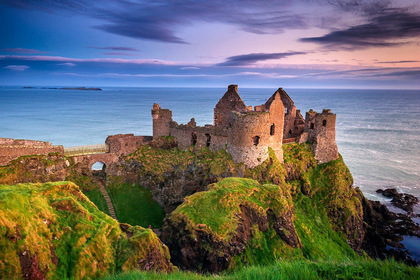Northern Ireland
Updated:
7 Sep 2020
Northern Ireland (Tuaisceart Éireann Ulster-Scots: Norlin Airlann) is variously described as a country, province or region which is part of the United Kingdom. Located in the northeast of the island of Ireland, Northern Ireland shares a border to the south and west with the Republic of Ireland. In 2011, its population was 1,810,863, On 11 January 2020, legislators in Northern Ireland formed a government for the first time since the Executive of the 5th Northern Ireland Assembly collapsed in January 2017, following the Renewable Heat Incentive scandal. Northern Ireland was created in 1921, when Ireland was partitioned between Northern Ireland and Southern Ireland by the Government of Ireland Act 1920. Unlike Southern Ireland, which would become the Irish Free State in 1922, the majority of Northern Ireland's population were unionists, who wanted to remain within the United Kingdom. Most of these were the Protestant descendants of colonists from Great Britain. However, a significant minority, mostly Catholics, were nationalists who wanted a united Ireland independent of British rule. Today, the former generally see themselves as British and the latter generally see themselves as Irish, while a distinct Northern Irish or Ulster identity is claimed both by a large minority of Catholics and Protestants and by many of those who are non-aligned. For most of the 20th century, when it came into existence, Northern Ireland was marked by discrimination and hostility between these two sides in what First Minister of Northern Ireland, David Trimble, called a "cold house" for Catholics. In the late 1960s, conflict between state forces and chiefly Protestant unionists on the one hand, and chiefly Catholic nationalists on the other, erupted into three decades of violence known as the Troubles, which claimed over 3,500 lives and injured over 50,000 others. The 1998 Good Friday Agreement was a major step in the peace process, including the decommissioning of weapons and security normalisation, although sectarianism and religious segregation still remain major social problems, and sporadic violence has continued. The economy of Northern Ireland was the most industrialised of Ireland, declining as a result of the political and social turmoil of the Troubles, but economically growing significantly since the late 1990s. The initial growth came from the "peace dividend" and the links which increased trade with the Republic of Ireland, continuing with a significant increase in tourism, investment and business from around the world. Unemployment in Northern Ireland peaked at 17.2% in 1986, dropping to 6.1% and down by 1.2 percentage points over the year, similar to the UK figure of 6.2%. More than 58% of those unemployed had been unemployed for over a year. Cultural links between Northern Ireland, the rest of Ireland, and the rest of the UK are complex, with Northern Ireland sharing both the culture of Ireland and the culture of the United Kingdom. In many sports, the island of Ireland fields a single team, a notable exception being association football. Northern Ireland competes separately at the Commonwealth Games, and people from Northern Ireland may compete for either Great Britain or Ireland at the Olympic Games.




